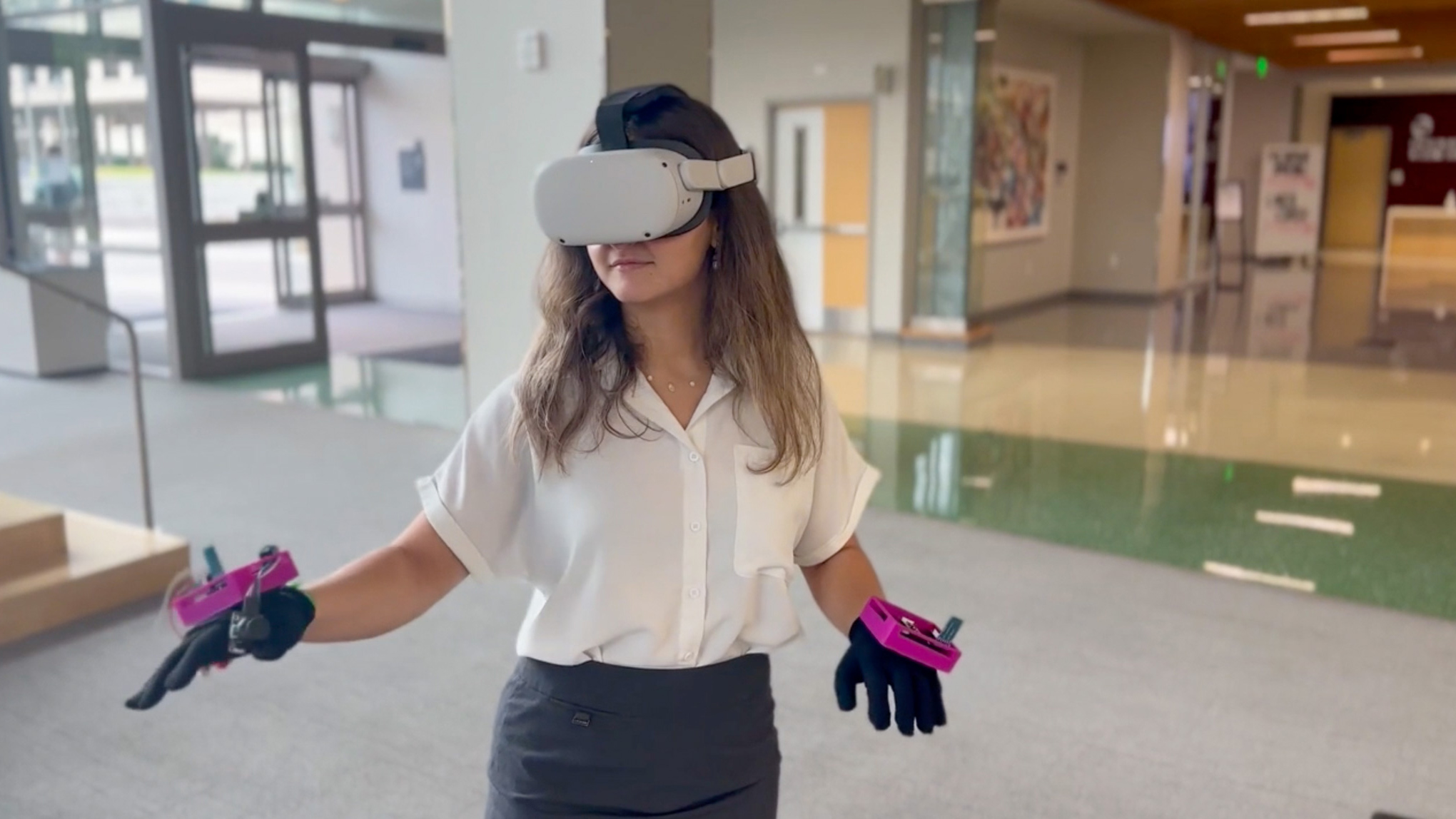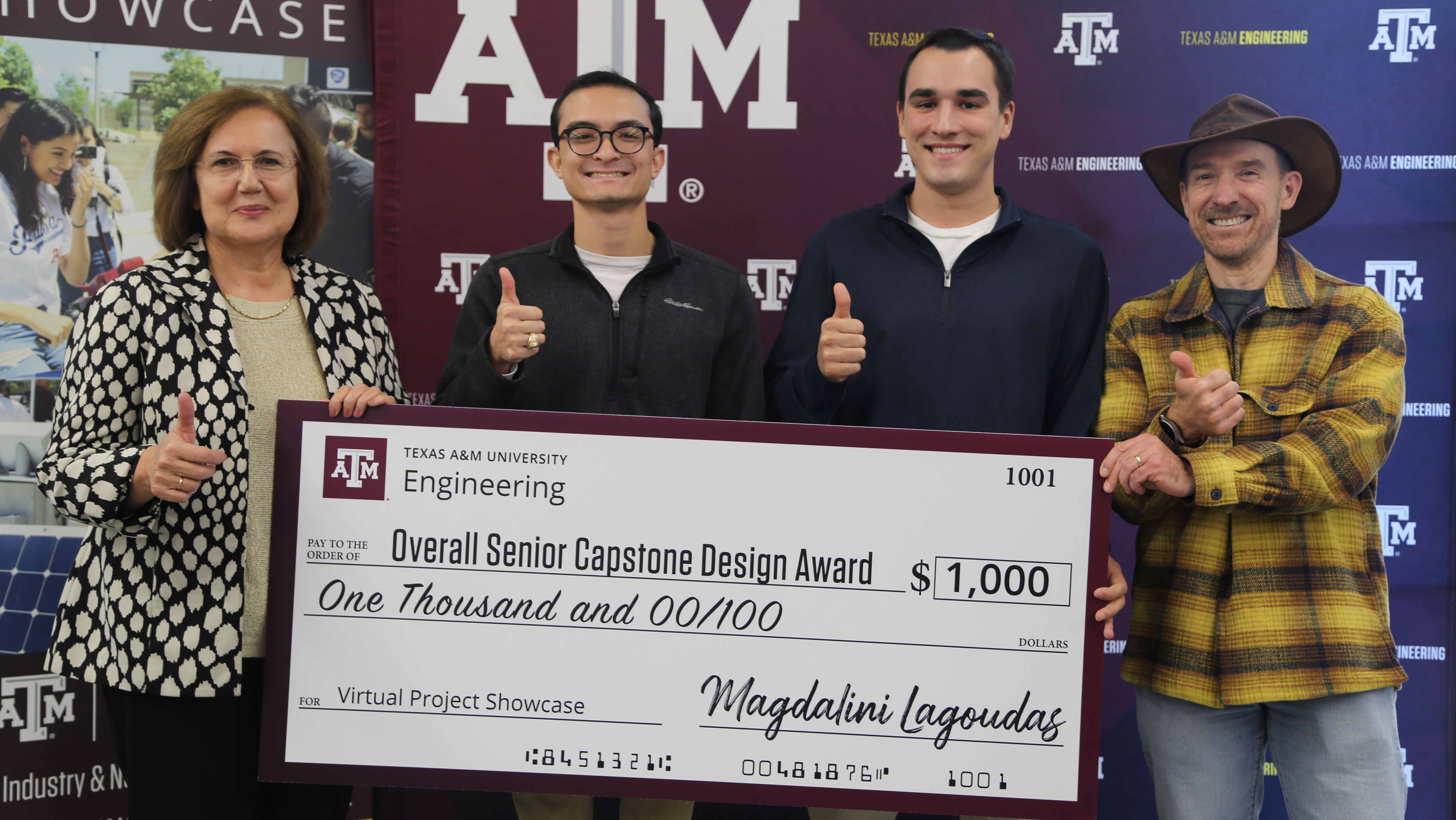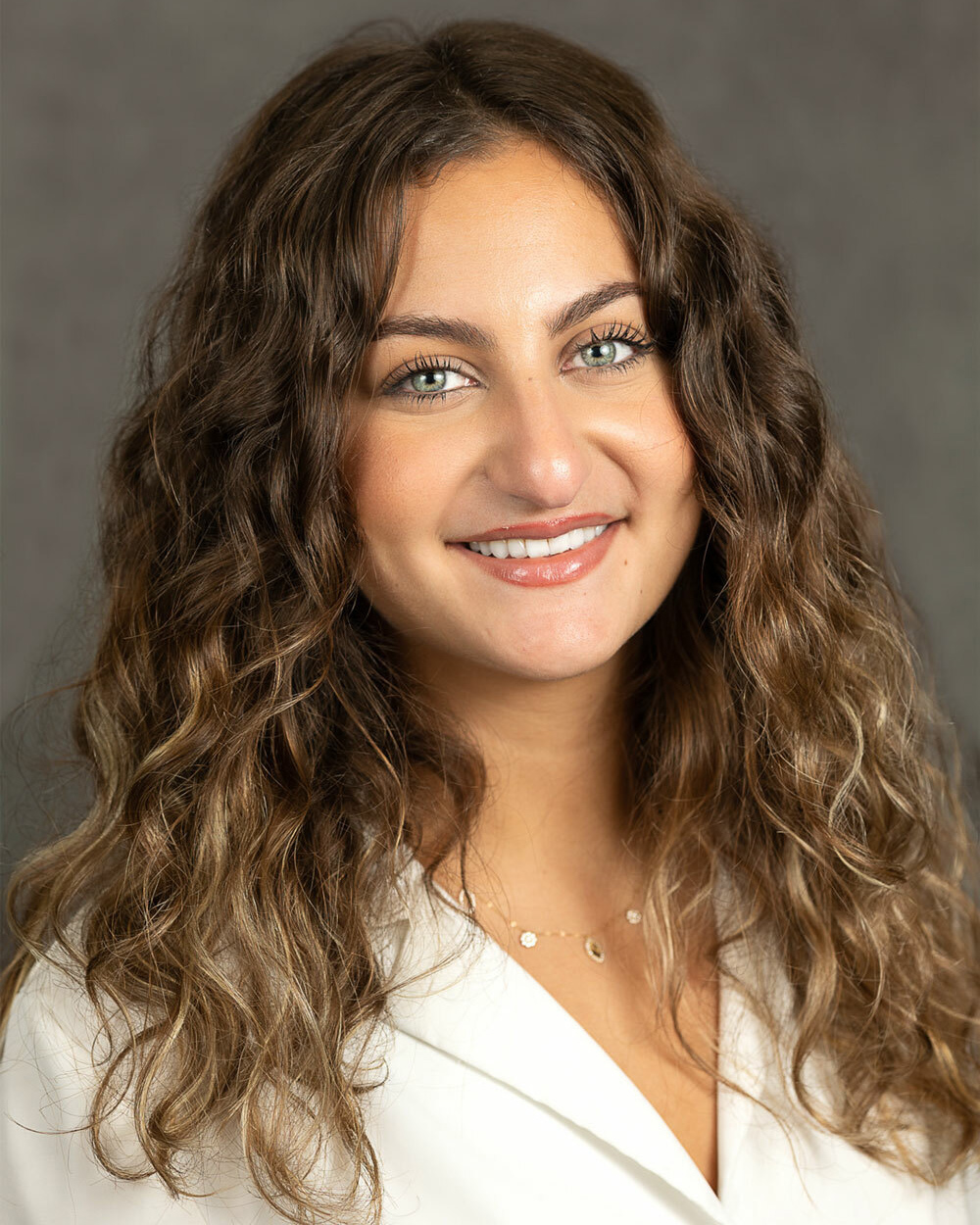
Three engineers from the Department of Electrical and Computer Engineering set out to create an affordable virtual reality application for their senior capstone project to help people with anxiety and neurological disorders. The team entered the project into the Fall 2023 Virtual Project Showcase (VPS), and out of the 109 teams that participated, they won first place overall.
Sponsored by Indigo Affect, the team created this application as an at-home treatment for patients who may not be able to afford health care.
It turns out that a pair of goggles, a set of controllers, and a computer can make all the difference in a patient's mental health. According to the National Institutes of Health, VR programs can be tailored to match a person’s preferences, needs or abilities through immersive and realistic environments. However, the cost of VR can be prohibitive.
"Virtual reality is very versatile in its applications," said team member Deva Issa, a recent electrical engineering graduate. “But it's quite expensive when looking at all the graphics hardware required to run it, so our project objective was to create a VR streaming service to reduce the user's hardware needs, as well as create inexpensive controllers and a multiplayer service to lower the price of VR streaming."

The team spent two semesters enhancing an existing VR simulation provided by their sponsor. They created inexpensive hand-tracking controllers within the stream-to-VR service and a software application that synchronized all the connected VR simulations to one shared, multiplayer environment.
The team was able to program VR in a game engine called CryEngine, utilize Amazon Web Services to host the multiplayer server, and create a physical hand tracking device that connects to the VR simulation so that users can interact with each other.
“Not many people use CryEngine,” said team member and recent electrical engineering graduate Eric Hyche. “Our sponsors actually created VR programming within CryEngine so using it as the platform for which we VR programmed was extremely unique. Another distinctive aspect is that we can use our hardware hand tracking device as a controller that connects to the CryEngine game engine, via Bluetooth and our application.”
The team’s ultimate goal is to bring the application to the market.
"I'm proud and happy that our hard work paid off because we put in a lot of effort over the semester," said team member and computer engineering graduate Matthew Edge. "I was pleasantly surprised when we won. I'm just proud of the work that the team was able to do. And I'm really glad that we were able to put together a good product at the end of the VPS."

The VPS is a competition open to all engineering students working on senior design capstone projects, giving students a chance to show off their innovative thinking to industries nationwide. Students work in teams to submit a 5 to 10-minute video addressing their design problem, a solution backed by data, and the impact of their project. Students can network with industry professionals who judge the projects and provide input at the event. The winning teams receive cash prizes.
"It's a great way to add some friendly competition to capstone," Hyche said. “Since the judges only assess the project from the video, merely displaying the main requirements and a working demonstration isn’t enough; incorporating showmanship and going above and beyond to make the video memorable are also important.”
All three team members are now working in industry. Issa accepted a system engineering position at Texas Instruments in Dallas, Hyche is a design verification engineer, and Edge is working as an automation engineer at Occidental Petroleum.
"It's an amazing learning experience, especially if you work with a team,” Issa said. "You have the opportunity to innovate, create, and work with others, which is extremely important for an engineering student to experience throughout their college career. Plus, you get to see all the amazing things that other teams are working on from all the engineering disciplines."